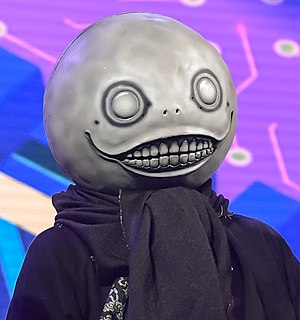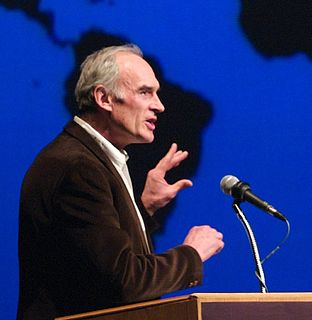A Quote by C. S. Lewis
A world of automata – of creatures that worked like machines – would hardly be worth creating.
Related Quotes
Machines help us do things more quickly and efficiently, but they can also destroy some community activities. Machines can also throw the weakest people out of work and this would be sad, because their small contribution to the housework or cooking is their way of giving something to the community. People who are capable of doing things very quickly with the help of machines become tremendously busy, always active, in charge of everyone - a bit like machines themselves.
Once I'd worked out that I couldn't possibly expect people to enjoy a monstrous, 3000-page book, I realised I could in fact create a labyrinth of a story with four different points of entry. But what interested me was creating something that would rearrange itself every time you read one of the other books. So depending on which order you read them, the implications and angles would change. To get that right, each one of the books had to have its own personality and texture -- even though they are connected, they are very different creatures.
We have always underestimated the cell...The entire cell can be viewed as a factory that contains an elaborate network of interlocking assembly lines, each of which is composed of a set of large protein machines...Why do we call [them] machines? Precisely because, like machines invented by humans to deal efficiently with the macroscopic world, these protein assemblies contain highly coordinated moving parts.
If God thinks this state of war in the universe is a price worth paying for free will--that is, for making a live world in which creatures can do real good or harm and something of real importance of real importance can happen, instead of a toy world which only moves when He pulls the strings--then we may take it it is worth paying.
Even though I make documentaries, everyone's acting in a way. Really. And you're creating, and you're confabulating things. You can't relive reality, you can just present it. And that's what I do. I have worked with actors and I like it very much, so maybe. I think that would be wonderful to do something like that, as well.
When I worked with General Electric, again this was soon after the Second World War, you know, I was keeping up with new developments and they showed me a milling machine and this thing worked by punch cards - that's where computers were at that time, and everybody was sort of sheepish about how well this thing worked because in those days machinists were treated as though they were great musicians because they were virtuosos on these machines.
Just supposing for the sake of the argument that there is a being of such a kind as that He may with any propriety be called "God", it does seem antecedently very improbable that weak and limited creatures of a day, such as we are, should discover Him by our own efforts.... who could be discovered in that way would hardly be worth discovering. I think we ought to stick to that principle rather firmly. I think we ought to be rather sure that we cannot know God unless God has been pleased to reveal Himself to us.


































